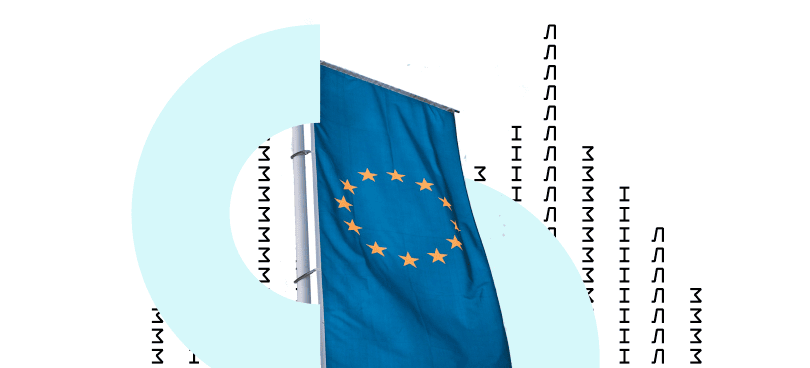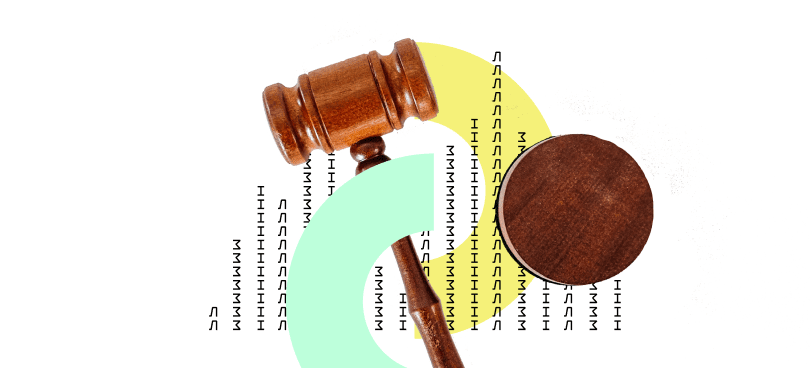Text prepared for “Yevropeiska Pravda” (European Truth e-newspaper)
The current law On the Protection of Consumer Rights was adopted back in 1991.
It is poorly geared to modern realities — online stores became a reality not so long ago, and high-tech products were not so widely used before.
So even now, things that have long been commonplace for us are sort of in the ‘grey zone’ of legislation. Warranty obligations, online trade, manipulation in advertising and lots of other things — they either do not exist for the current law or are prescribed too primitively for the protection of consumer rights.
At the same time, the commitments made by Ukraine to the EU include reforming this area.
Therefore, in order to address these specific tasks and modernise the legislation, draft Law No. 6134, On the Protection of Consumer Rights, was registered two years ago. What does it actually offer to consumers?
One aspect of the current law’s being out of date is that it does not extend to the Internet, where increasingly more people order goods and services. In this regard, among other things, the concepts of marketplace (e-commerce platform) and price aggregator (electronic product comparison service) are introduced.
The goal is to expand consumers’ rights to online stores as well.
Extension of consumer rights to product information. Even in the past, manufacturers had to indicate the company’s location and contact details on the goods, as well as details about the product itself — and the new draft law proposes to extend this rule to online commerce as well.
That is, detailed information about the manufacturer needs to be indicated on the marketplaces. A legal entity’s or private entrepreneur’s place of registration and name must be published in order for the State Service of Ukraine on Food Safety and Consumer Protection to handle complaints in an effective way. Penalties for non-compliance are severe.
The State Service of Ukraine on Food Safety and Consumer Protection gets the right to “request an Internet service provider to restrict access to the website”, in other words, to block the pages of entrepreneurs lacking integrity.
The draft law does not give an unequivocal answer as to whether social media can be marketplaces. It is on those platforms that large volumes of products and services are distributed. Taking into account all of the above, the State Service of Ukraine on Food Safety and Consumer Protection should significantly beef up its staff and funding in order to control all online stores. After all, controlling such large data sets is not a piece of cake.
One of the most significant changes is the introduction of mandatory warranty periods for goods. Mandatory are: two years for new goods, including digital ones, one year for used goods and 10 years for real estate.
Conditions of warranty have also changed: now, upon presentation of a receipt, the product must either be repaired within 14 days or a similar one must be provided.
At that, the warranty also starts to apply to the new spare part, and also for two years. So, after a similar breakdown, the part may be replaced again, it will be necessary to just adhere to the period of two years from the previous repair.
These terms are the minimum, but the seller may provide an additional commercial guarantee, which must also be observed under law. And an interesting detail is that if the advertisement offers more favourable warranty terms than the contract, the warranty must be fulfilled in line with the very conditions specified in the advertisement.
The consumer is deprived of the right to terminate the contract of sale in case the identified shortcoming “is minor” and “can be easily eliminated”.
The devil is in the details: there are no separate standards for a “minor” shortcoming, which makes the law too subjective in its essence. Yes, the minor nature of the shortcoming is allegedly supposed to be proven by the seller…
But what does that mean? Even the National Agency for the Prevention of Corruption (NAPC) stated in its opinion on the draft law: “The application of judgemental concepts in conjunction with a non-identified proof mechanism (…) deprives the consumer of the right to demand termination of the contract and creates additional corruption risks.”
Manipulations with the terms “discount” and “sale” is now illegal.
In order to use these terms and those similar in their essence, certain conditions need to be met, such as: the discount can only last for a limited amount of time (the item cannot be “discounted” permanently), and the price must be less than the lowest price in the last 30 days.
Similar rules apply to “sales”, with the only difference being that the sale itself must take place — by selling all products or their separate group.
So, Black Friday will no longer be an opportunity for sellers to stick a “discount” sticker on all items with no real price change, and “sales” that last forever will die out.
Currently, every seller has to maintain an “exchange pool” of goods. Not at will — during a warranty repair, the seller is obliged by law to provide a similar product at the buyer’s request.
This rule is not very robust because maintaining that pool and the premises for it is burdensome for the entrepreneur, and a large portion of the buyers are not aware of this norm — so the money for the pool is wasted. Currently, the norm on the exchange pool is in effect, so at the next warranty repair, do request a similar product.
In contrast, the new draft law provides for the abolition of the mandatory exchange pool by cancelling the non-robust norm.
The consumers’ right is enshrined to freely choose a payment method, including a bank card. So now, at the request of the buyer, entrepreneurs must accept a bank card for goods and services payments with no right to demand an increased fee for the use of this form of payment.
All these changes were proposed before the first reading and are still relevant now. However, further down the road, the story with the draft law becomes more complicated.
Prior to the second reading, the parliamentary committee adopted a large number of amendments, which received a lot of criticism from all sides: from the business community, public organisations, partners and government bodies.
The NAPC, the European Business Association, the American Chamber of Commerce in Ukraine and other organisations categorically opposed the new version of the document. Moreover, it was the new amendments that caused such sharp criticism.
There were several main changes: the introduction of the Union of Public Associations and the Committee for Out-of-Court Dispute Resolution, the appointment of a person responsible for the protection of consumer rights in every office and commercial building, and the implementation of the state register “E-buyer”. As of writing this article, the story is evolving — on 2 May, a new version of the document was submitted for the second reading, and almost all of the above-mentioned amendments were cancelled in it. Yet the next day, the draft law was completely dropped from the parliament’s agenda.
Civil society’s pressure and constructive criticism forced lawmakers to revise the draft law and improve it. But there is one “but”. One of the high-profile amendments was still kept in the current wording, namely the amendment on the state register “E-buyer”. If the draft law is adopted, this novelty will primarily affect entrepreneurs.
“E-buyer” must contain information on sellers that sell goods and services via the Internet. Within 10 days after the start of their activity, entrepreneurs are obliged to feed the register with extensive information about it (location of a legal entity or residence of a private entrepreneur, contact phone number, web address, e-mail, etc.).
Upon registration, the entrepreneur will receive the status of “verified seller”, which is indicated in the online store. The register “E-buyer” will contain companies’ rankings and also become a place to submit and handle complaints on violations of consumer rights.
In general, draft law No. 6134 proposes introducing a register of all companies providing goods and services via the Internet. Where the entrepreneur fails to feed the data, the State Service of Ukraine on Food Safety and Consumer Protection can block both sellers’ pages and entire marketplaces hosting them.
According to the amendment on the register “E-buyer”, the marketplaces must control sellers’ registration in “E-buyer”. What’s more: the very marketplaces must monitor the reliability of the information provided, and it is they that must block sellers who use the “verified seller” lacking integrity.
And if social media are also to be considered marketplaces — well, the State Service of Ukraine on Food Safety and Consumer Protection will get far more responsibilities and opportunities to control a large part of the Internet.
However, we note that any amendments can still be cancelled and changed after a dialogue between society and the authorities, so the current version of the draft law should not be considered final.
The new law offers many novelties: Internet trade is removed from the ‘grey zone’, mandatory warranty obligations are introduced, manipulations in advertising will become less common and, in general, consumer rights are significantly expanded compared to the current outdated law.
Here, controversial amendments have been repealed, and the dialogue between society and lawmakers will hopefully continue and will create the best version of the law.
Draft law No. 6134 is an important step towards approximating Ukrainian laws to EU legislation, so it must be approached responsibly by both society and MPs.
The text was prepared within the framework of the project “Civil Society for Ukraine’s Post-war Recovery and EU-Readiness”, which is implemented with the financial support of the European Union.















